Last updated on March 2nd, 2025
A Magnaclean is a central heating magnetic filter, made by Adey, that collects iron oxide and sludge that builds up in central heating systems. This stops the sludge from collecting in parts in your boiler which causes boilers to break down.
I have been a full-time heating engineer and cleaning magnetic filters for over a decade. Here I’ll give you my best advice for cleaning a Magnaclean filter from my everyday on-the-job experience.
Magnaclean Spanner
A Magnaclean spanner is needed to clean a Magnaclean filter. The black plastic Magnaclean spanner is used to unscrew the top off the filter and remove the magnet inside to clean. There is also a smaller black plastic Magnaclean spanner that can be used to close the valves but you can use any adjustable spanner or water pump pliers to do this also.
To clean a Magnaclean filter (sometimes called a Magnaclean service) you will need a Magnaclean spanner, a radiator bleed key, an old towel, and some kitchen roll.
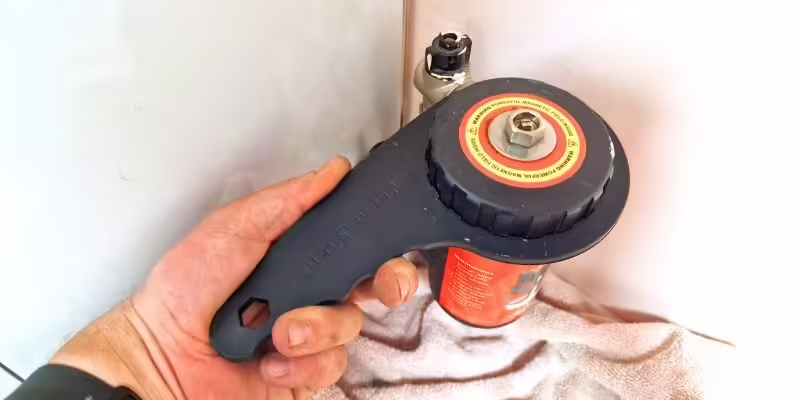
Instructions
My process to clean a Magnaclean filter:
- Lay a towel underneath the filter.
- Close the two valves on the filter using a spanner.
- Open the bleed screw at the top of the filter with a bleed key to release the pressure.
- Place the Magnaclean spanner over the top of the filter and turn anti-clockwise.
- Remove the top of the filter with the magnet and sheath.
- Remove the sheath from the magnet and clean off the sludge with some kitchen roll.
- Then run it under the tap and clean any dirt off the magnet.
- Refit the sheath over the magnet and refit into the filter and screw tight with your hands only – no need to tighten with the Magnaclean spanner.
- Open the two valves and check for leaks.
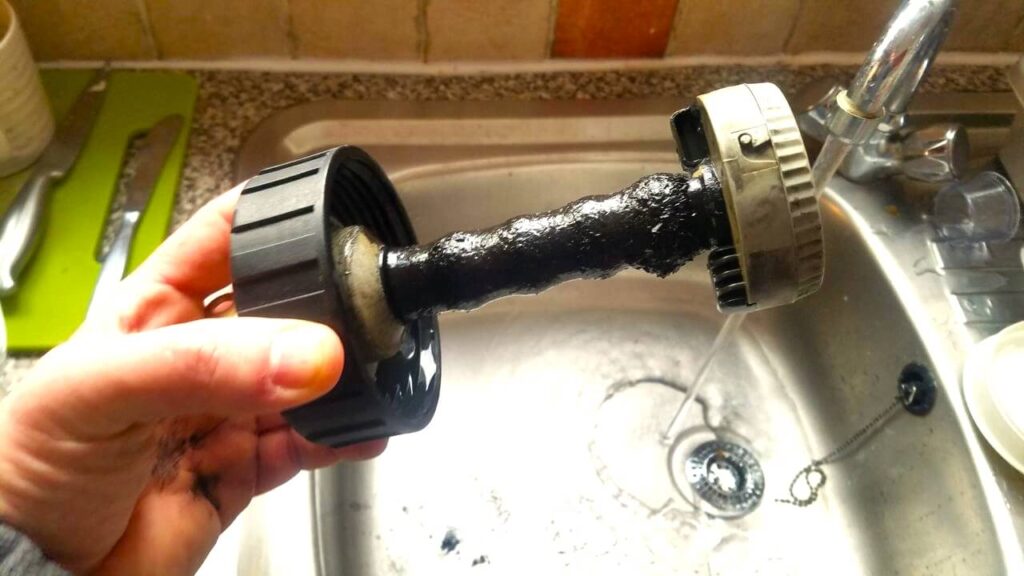
Leaking
If you have a Magnaclean leaking, then most of the time it is because of the rubber O-ring that sits inside the lid. This can be hard to see and remove but if your Magnaclean is leaking then you should replace this O ring. You can sometimes get away with removing, cleaning and silicone greasing the O-ring to stop the leak, but most of the time it needs to be replaced.
You can buy lots of Magnaclean spares (including the O-ring) but if the casing on the Magnaclean filter is causing the leak then you will need to replace the full filter.
Magnaclean seal kit
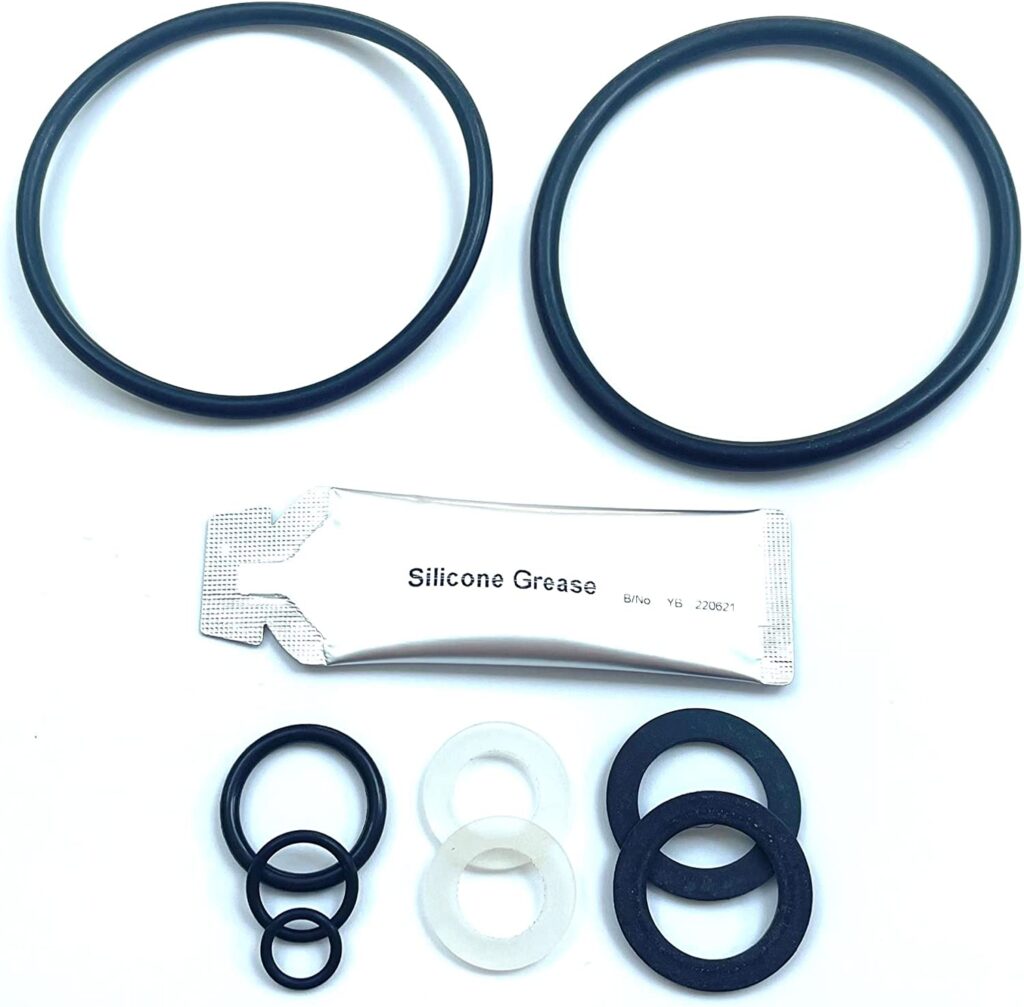
A Magnaclean seal kit will be needed sometimes to fix a leaking Magnaclean filter.
I like to keep one of these Magnaclean seal kits on the van so I’m covered to fix leaking Magnacleans and Fernox TF1s.
You typically only need to replace the main O-ring but the others occasionally come in handy.
Best Magnaclean filter?
The best Magnaclean filter for me is definitely the Magnaclean Professional 2. I have fitted and cleaned four different Magnaclean filters a lot over the years and the Pro 2 is the best by far.
The biggest thing for me on a Magnaclean filter is being able to pour cleaner and inhibitor chemicals in and the Pro 2 can take 500ml bottles with no problem.
The Pro 2 is also good for connecting my Magnacleanse hoses when Magnacleanse flushing a heating system. The filter is quick release and the hoses fit on the connections easily.
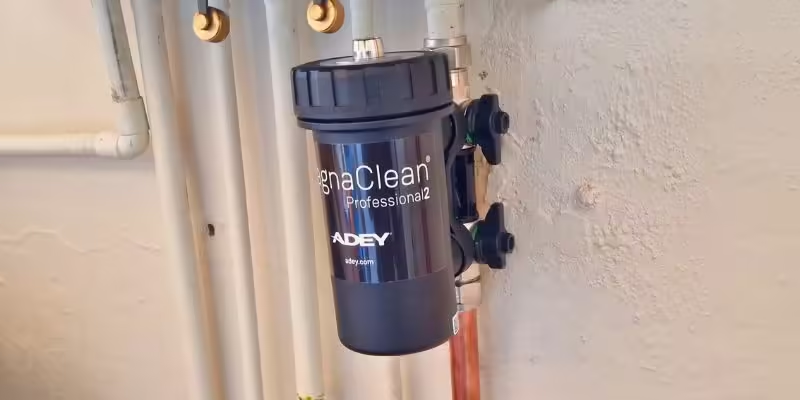
I haven’t tried the Magnaclean Professional 3 Sense and don’t plan on it anytime soon. It seems unnecessary and customers just aren’t that bothered about monitoring how dirty their heating system is through an app.
The Magnaclean Atom is good for tight spaces but you can’t use it to put any chemicals in.
Installation
Magnaclean installation instructions can be found in the leaflet that comes with Magnaclean filters. Fitting a Magnaclean is very straightforward if you have done any kind of plumbing before.
Instructions for installing a Magnaclean:
- Drain the central heating system
- Connect the valves to the Magnaclean filter
- Hold the filter in position on the pipe where it’s going (preferably on the return pipe close to the boiler) and mark the pipe where they sit in the valves
- Cut the section of pipe out with a 22mm pipe cutter (possibly 28mm but I haven’t fitted one this size)
- Fit the valves and filter on the pipe and tighten up all nuts
- Refill the central heating system and bleed the Magnaclean filter as well as the radiators
Summary
Regular central heating magnetic filter cleaning is recommended unless you know the system is super clean. Fixing a leaking Magnaclean is possible most of the time, but if it’s old and battered you’re probably better off replacing it.
Feel free to ask any questions in the comments below, and I’ll do my best to help. If you found this post helpful, please consider sharing it.
FAQs
How often should I clean a Magnaclean filter?
You should clean a Magnaclean filter as often as needed for your heating system. If you get your boiler serviced regularly you could get the filter cleaned every year when the boiler is serviced but it’s not necessary. If you have a dirty heating system or just had a dirty heating system flushed, then cleaning the filter every month or two might be a good idea just to ensure all the sludge is out.
If you have a new heating system or you know the heating system is immaculate, you can pretty much forget about the filter for a good few years as it takes a long time for sludge to build up. Most people never clean their Magnaclean filters.
Can I clean a Magnaclean myself?
Yes, you can clean a Magnaclean yourself. If you follow the instructions carefully then cleaning a Magnaclean filter can be very simple.
Where do I fit a Magnaclean filter?
A Magnaclean filter should be fitted on the return pipe as close to the boiler as possible. This way the dirt that builds up in the radiators and heating system is collected in the Magnaclean filter before it goes through the boiler and gets lodged in the boiler parts. If you can’t fit the Magnaclean filter close to the boiler or even on the return pipe, you should still fit the filter somewhere on the central heating system, as having it anywhere is so much better than not having one.
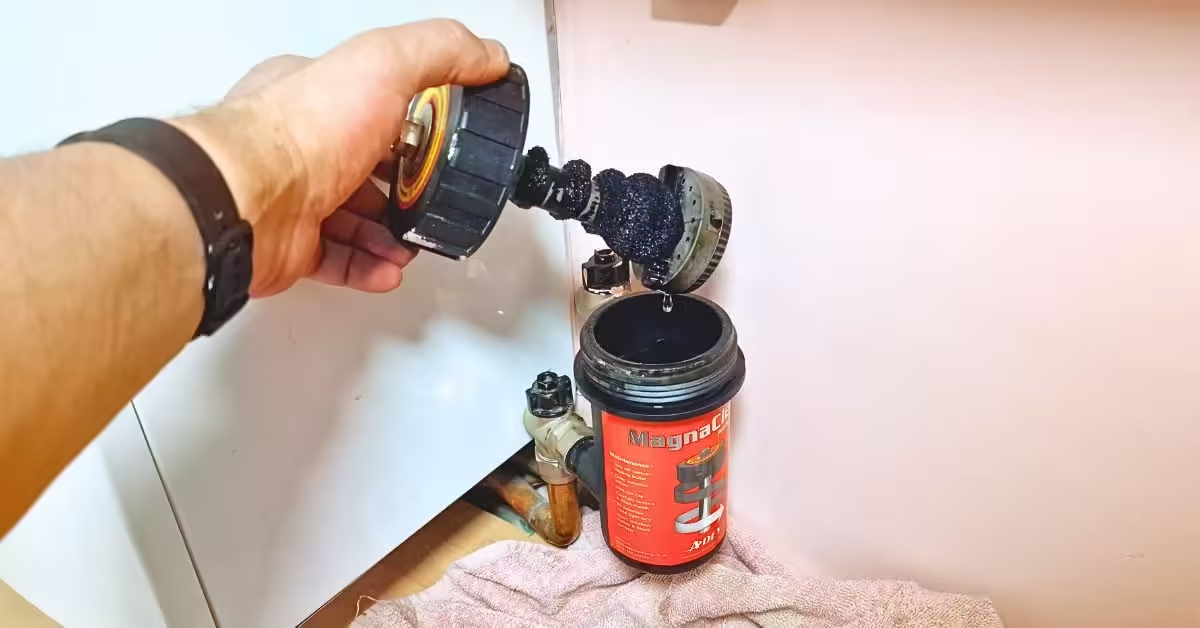

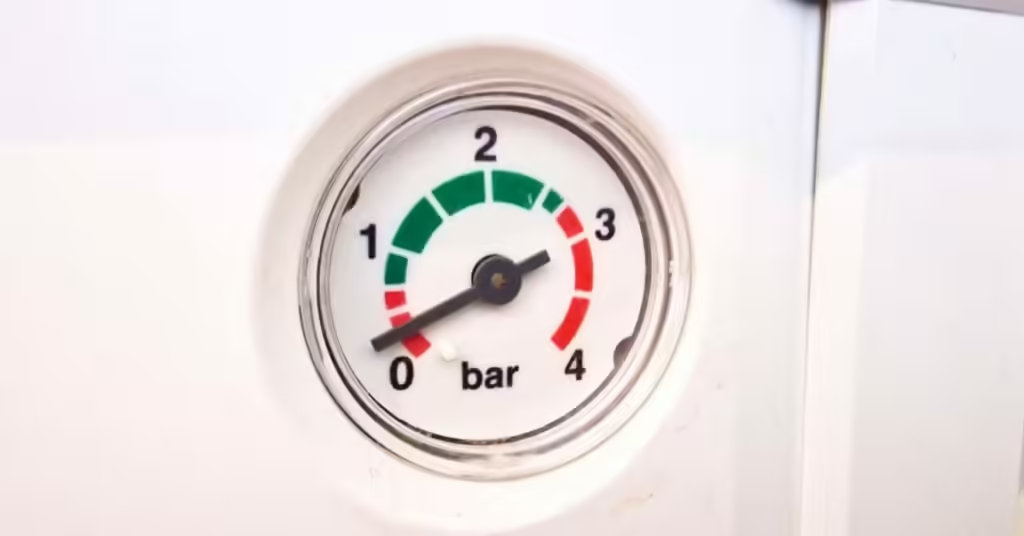
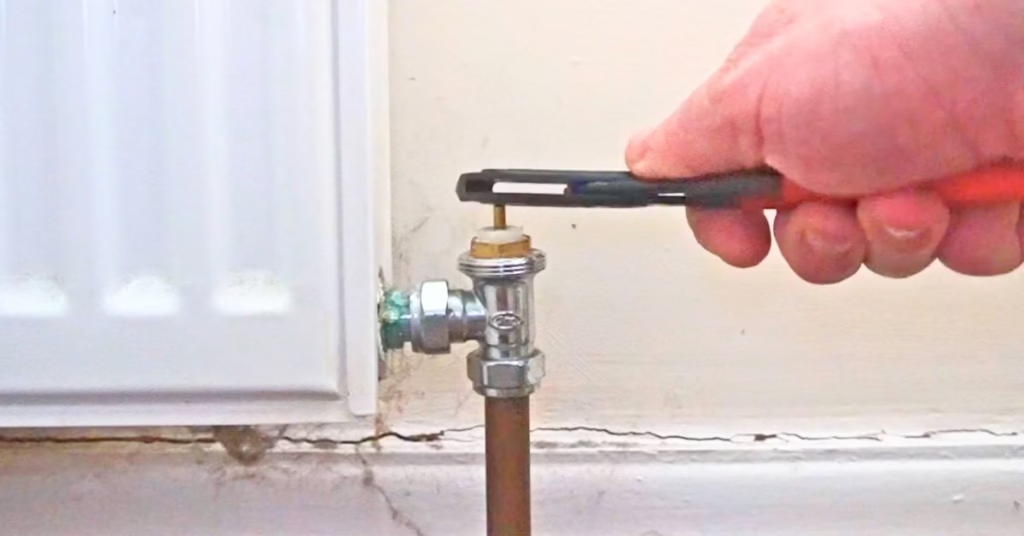
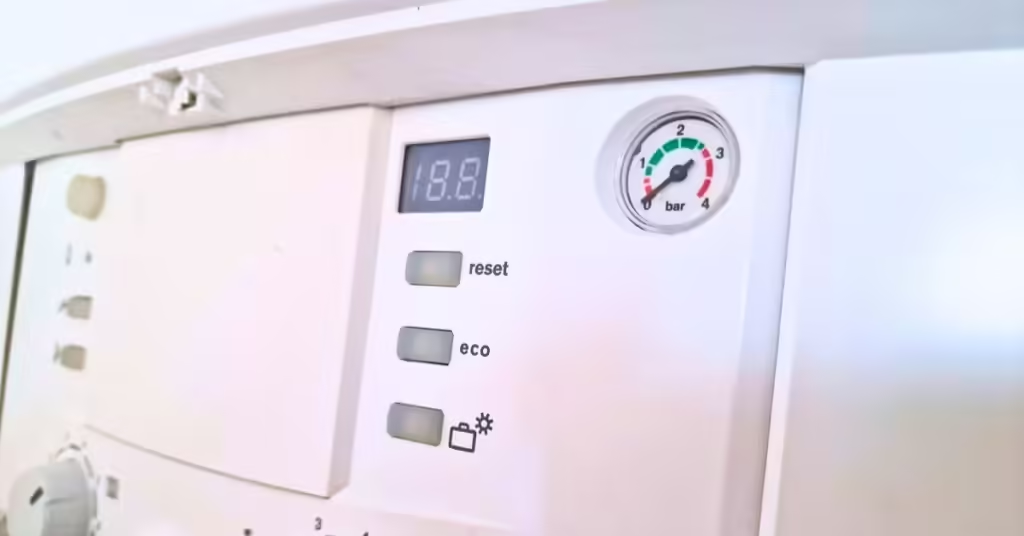
Great article
Thanks Dennis
Nice concise article Steven, thanks!
Thanks, Nilesh. Happy to help.